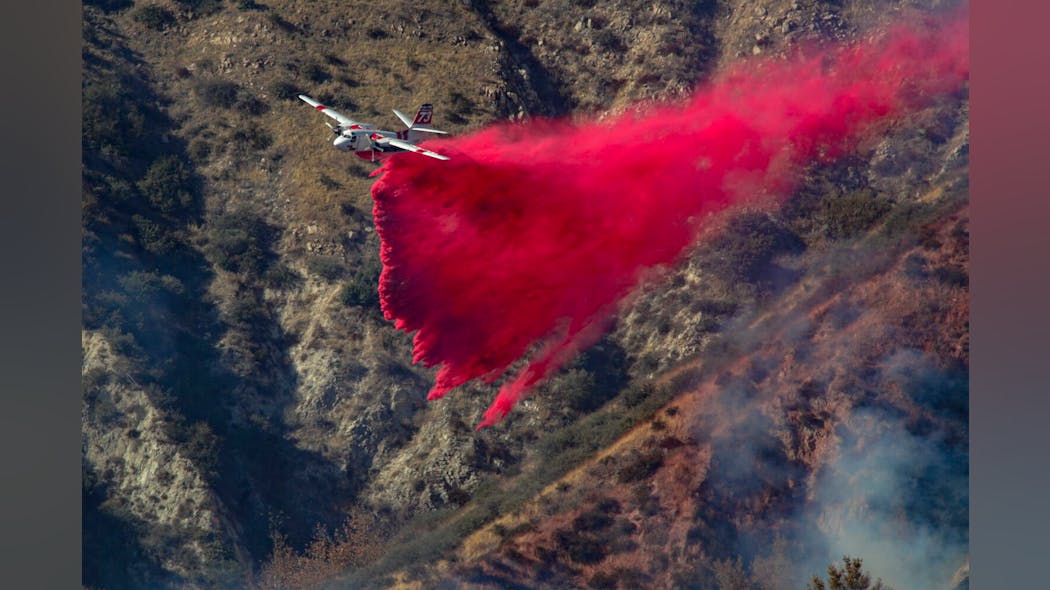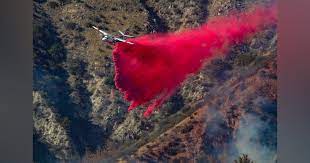April 26, 2023 Advocacy group seeking an injunction barring the use of the chemical spray saying it’s polluting waterways and killing wildlife.
By Zoë Buchli Source Missoulian, Mont. (TNS) Distributed by Tribune Content Agency, LLC.

Apr. 24—A case brought by an Oregon-based advocacy group challenging the U.S. Forest Service’s use of aerial fire retardant is making its way through federal court, with a judge now tasked on deciding how the agency can use retardant this summer while it seeks Environmental Protection Agency guidance.
Forest Service Employees for Environmental Ethics filed the lawsuit objecting to the Forest Service’s use of fire retardant in U.S. waterways. The suit, filed last October, accuses the Forest Service of violating the nation’s Clean Water Act. It claims the retardant use during wildfires harms or kills fish and amphibians in the streams or lakes where it’s dropped from tanker aircraft.
The ethics group is requesting the court grant an injunction against the Forest Service, barring it from depositing fire retardant into U.S. streams and rivers until a permit comes through from the EPA.
At Monday’s hearing, attorneys for both sides confirmed the Forest Service is in the process of getting a permit from the EPA, but the process will likely take between two and three years.
Missoula U.S. District Judge Dana L. Christensen didn’t give an exact timeline of when he expects to rule on the injunction request. But he added he’s aware of the impending fire season and wants to act with a sense of urgency.
In court filings, lawyers for the Forest Service wrote that because of the lengthy permit timeline, “the Forest Service anticipates that it will have to discharge fire retardant to waters in limited circumstances until 2025 without a permit. However, these potential future Clean Water Act violations do not themselves provide a basis for the finding of liability or the broad injunctive relief FSEEE seeks.”
Forest Service officials acknowledged in court filings that retardant has been dropped into waterways more than 200 times in the past decade, the AP reported. Officials said it’s typically a mistake, and environmental damage from wildfires exceeds harm done by retardant.
The Associated Press cited a Department of Agriculture report that 100 million gallons (378 million liters) of fire retardant were used during the past decade. The chemical is made up of water and other ingredients including fertilizers or salts that can be harmful to fish, frogs, crustaceans and other aquatic animals.
Missoula-based Neptune Aviation is one of the nation’s largest providers of aerial firefighting planes. It is not part of the lawsuit.
“The issue here is what comes next?” said Timothy Bechtold, a Missoula lawyer representing the ethics group, at the outset of Monday’s hearing. In court filings and at the hearing, Bechtold contended that retardant qualifies as a pollutant in waterways and causes aquatic life to die. He said the Forest Service can responsibly dump the chemicals while still protecting human safety.
“The Forest Service says it should be allowed to pollute, business as usual,” Andy Stahl, FSEEE Executive Director, told the AP. “Our position is that business as usual is illegal.”
On Monday, attorneys also sparred over retardant’s efficacy in tamping down fires.
Lawyers defending the Forest Service argued that limiting fire retardant use takes many options for firefighters off the table when it comes to fighting wildfire.
Alan Greenberg, a Department of Justice attorney for the Forest Service, said the injunction the advocacy group is seeking is overly broad, and is only specific to one incident in the Los Padres National Forest where retardant was dumped on a waterway.
Julian Ellis Jr., a Denver-based attorney representing wildfire stakeholders in the case, argued that the Forest Service’s role in firefighting is paramount, and that while retardant isn’t the only tool in a firefighter’s toolkit, it’s a critical one.
“Lives and property depend on this decision,” Ellis said.
Zoë Buchli is the criminal justice reporter for the Missoulian.
